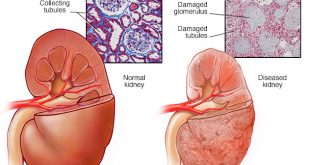National Transplant Waitlist: Malaysian Organ Sharing System
Kidney transplant is the best option for most patients with End-Stage Renal Disease, or Chronic Kidney Disease Stage V. Other alternative therapies when patients develop end stage kidney failure include Peritoneal Dialysis and Hemodialysis.
Transplantation involves implanting a kidney into your body, specifically to your internal blood vessels and adjoining organs. If the operation is successful and the transplanted kidney is able to function normally, you will be able to stop dialysis and lead a normal life. Hence kidney transplant will increase your life expectancy and improve your quality of life when compared to long term dialysis.
You can only undergo a kidney transplant if you have a kidney donor and the kidney donor can either be a living donor or a deceased (brain death) donor. Kidney transplant using kidney from living donor has better success and your close relatives (Living Related Transplantation) and spouse (Emotionally Related Transplantation) can be the donor. However, before your close relative or spouse can be the donor, many investigations need to be performed to ensure that the donor remained healthy after the donation. Deceased donor is an individual who has died (brain death) and the family has agreed to organ donation. Brain death is usually due to head injury or bleeding in the brain.
Other than having a donor, you must be physically and medically fit to undergo the transplant surgery.
However, if you do not have any suitable living donor and is keen to undergo renal transplantation, you may request your nephrologist to register you with the national deceased donor kidney transplant waiting list known as the Malaysian Organ Sharing System (e-MOSS).
All eligable patients who are keen to undergo deceased donor renal transplantation will need to provide a verbal or written consent to their nephrologists who takes care of them in their individual dialysis units. Individual patients’ details and medical records that are provided, confidentially, to National Renal Registry (NRR) will be transferred electronically to e-MOSS. Both NRR and e-MOSS are under the jurisdiction of Malaysian Society of Nephrology (MSN), a professional society .

About MOSS
In 1999, the Malaysian Society of Nephrology (MSN) established a committee, which was tasked to initiate the development of a national organ-sharing network. The network was referred as the Malaysian Organ Sharing System or MOSS in short, and the committee was thus named NRR/MOSS committee.
The objectives of MOSS are:
- To maintain a list of patients who have voluntarily enrolled as a potential recipients in the deceased donor kidney transplantation program
- To prioritize the waiting list according to an agreed criteria and point system
- To provide a list of suitably matched potential recipients based on agreed criteria when a deceased organ is available
The National Renal Registry (NRR), which is sponsored by MSN, was directed to assist in the setting up of MOSS and to make available its database to support MOSS operations. From this database, a transplant waiting list was generated.
The e-MOSS, a web based application is designed to facilitate the allocation of organ in the event of deceased organ donation. The doctor in-charge of the dialysis patients who participate in e-MOSS is responsible for maintaining and updating their patients on the waiting list.
- The nephrologist caring for dialysis patients can put their patients on the list, update their patients’ data, and take them off the list temporarily or otherwise when necessary.
- The Transplant Centre performing transplant surgery will have timely access to the current updated recipient wait list that is ranked according to pre-determined criteria. The process for selection of potential recipient is hastened. At the same time, the transplant physician is able to view the selected patients’ clinical information.
- In order to put patients on the wait list, the doctor in-charge of the dialysis center needs to participate in the National Renal Registry. The doctor is required to register all the dialysis patients in the center using Dialysis Patient Notification form that is provided.
- The MOSS Committee is able to convey its policy and operational decisions to users, such as assigning patients to nephrologist for purpose of managing their wait list status, adjudication on patient eligibility for transplant and their ranking on the list, and final decision on entry into the SOS list.
These terms and criteria for allocation of deceased organ have been published. (Malaysian Organ Sharing System (MOSS); Med J Malaysia Vol. 54 No. 4 Dec 1999; pg. 537-538).
Pre-registration Assessment:
All patients on dialysis will be on assessed by the nephrologist in-charge for eligibility for transplant. Patients’ clinical well-being, dialysis adequacy and maximal management of potential complications are addressed. Cardiovascular assessment is important in patients who had been on dialysis for a length of time. Investigations may include stress-test, echocardiogram, or even an angiogram and appropriate review by cardiologists, if and when necessary.
Not everyone is suitable for transplantation. Each patient will be assessed individually to see if transplantation is the best option. Reasons why kidney transplantation may not be the best treatment option include:
- History of recent cancer
- Recent major surgery
- Bad heart, lung or blood vessel disease
Medical staff will discuss transplantation with you. For the majority of patients transplantation is the ultimate goal, but for some, particularly those with other medical conditions, long-term dialysis may be the best option.
If transplantation is an option for you, you will undergo a series of blood tests and X-rays. After this, you will be referred to a transplant surgeon for further assessment. At this stage you will be given more information about the actual procedure.
If you do not wish to be on the transplant list that is your right and please communicate this to the nephrologist looking after you.
Eligibility criteria:
- All Malaysian citizens who are medically fit for transplantation
- Permanent residents will be considered on an individual basis.
Exclusion criteria:
- Patients aged less than 2 years old or above 60 years old are disqualified
- Patients with any disease or illness with expected survival of less than 5 years or with a resultant poor quality of life are not eligible.
- This will include patients with:
- Positive HIV serology.
- Positive Hepatitis Be antigen, Active Hepatitis B infection.
- Active liver disease.
- Severe cardiovascular/cerebrovascular/pulmonary disease.
- Dementia or psychosis with no underlying treatable disease.
- Malignancy (cancer) with limited life expectancy.
- Rare diseases such as Oxalosis (not contraindicated for combined liver and kidney transplantation), Fabry’s disease.
- Active substance abuse
Criteria for Prioritization of Candidates:
With rare exceptions, the donor and recipient should be of the same ABO blood group type.
Candidates with a limited life expectancy (<1year) without renal transplant will be placed into the medical emergency list (SOS List). The application to be placed on SOS list can only be made by nephrologist in-charge and a committee will review the SOS list periodically. Candidates on the SOS list will receive top priority in receiving a deceased donor kidney.
Risks of transplant
All organ/tissue donors are assessed to find out if they had any infection or illness that may be passed to patients who receive organ/tissue transplants. Every possible precaution is taken to prevent the transmission of viral infections, cancer or any other potentially life threatening condition to patients who receive an organ tissue for transplantation.
In the same way, very careful assessments are made on the function of the donor organ prior to transplant. Because of the shortage of organ donors, transplant surgeons and physicians may sometimes consider using organs from marginal donors such as older people. The results of transplants from donors like these are still considered acceptable. Therefore it is felt that the balance of risk is in favour of going ahead with such a transplant rather than leaving a patient waiting on the list. If there are any special risk factors associated with a donor over and above those described, doctors will discuss with the potential recipients in more detail before the operation.
What should you do patients do while on the active transplant waitlist?
- Try not to restrict activities/studies/ work.
- Continue to follow dietary advice
- Keep to your fluid restriction
- Take the medicines prescribed by your doctors
- Exercise
- Stop smoking
- Continue to attend your dentist regularly
All the above will help to keep you in good health for when you are called for your transplant operation.
What are the potential disadvantages of receiving a kidney from a deceased donor?
After transplant, the kidney may have delayed function (a period where the kidney “sleeps” until recovery). All donors are carefully screened to minimize the risk of infections such as hepatitis or HIV (AIDS) being passed on by transplant but there is still a small risk of this occuring. To protect the privacy of the donor family it is not possible to give specific details about the donor of your kidney. However if you have any anxieties or would like to talk about the general idea of organ donation please do not hesitate to ask the nephrologist looking after you.
| Last Reviewed | : | 14 June 2016 |
| Writer | : | Dr. Rafidah Abdullah |
| Accreditor | : | Dr. Wong Hin Seng |
 PENDIDIKAN PESAKIT Kementerian Kesihatan Malaysia
PENDIDIKAN PESAKIT Kementerian Kesihatan Malaysia

